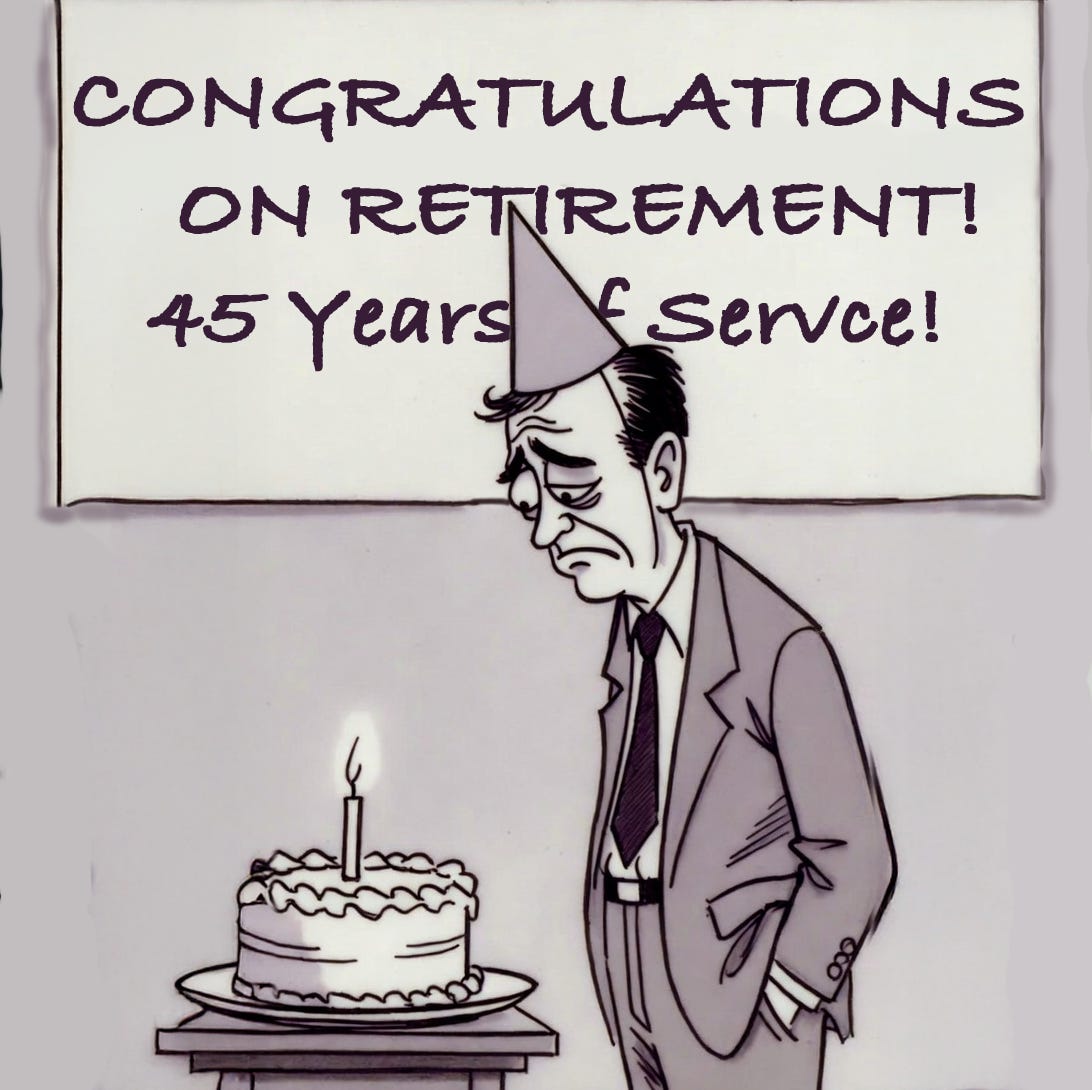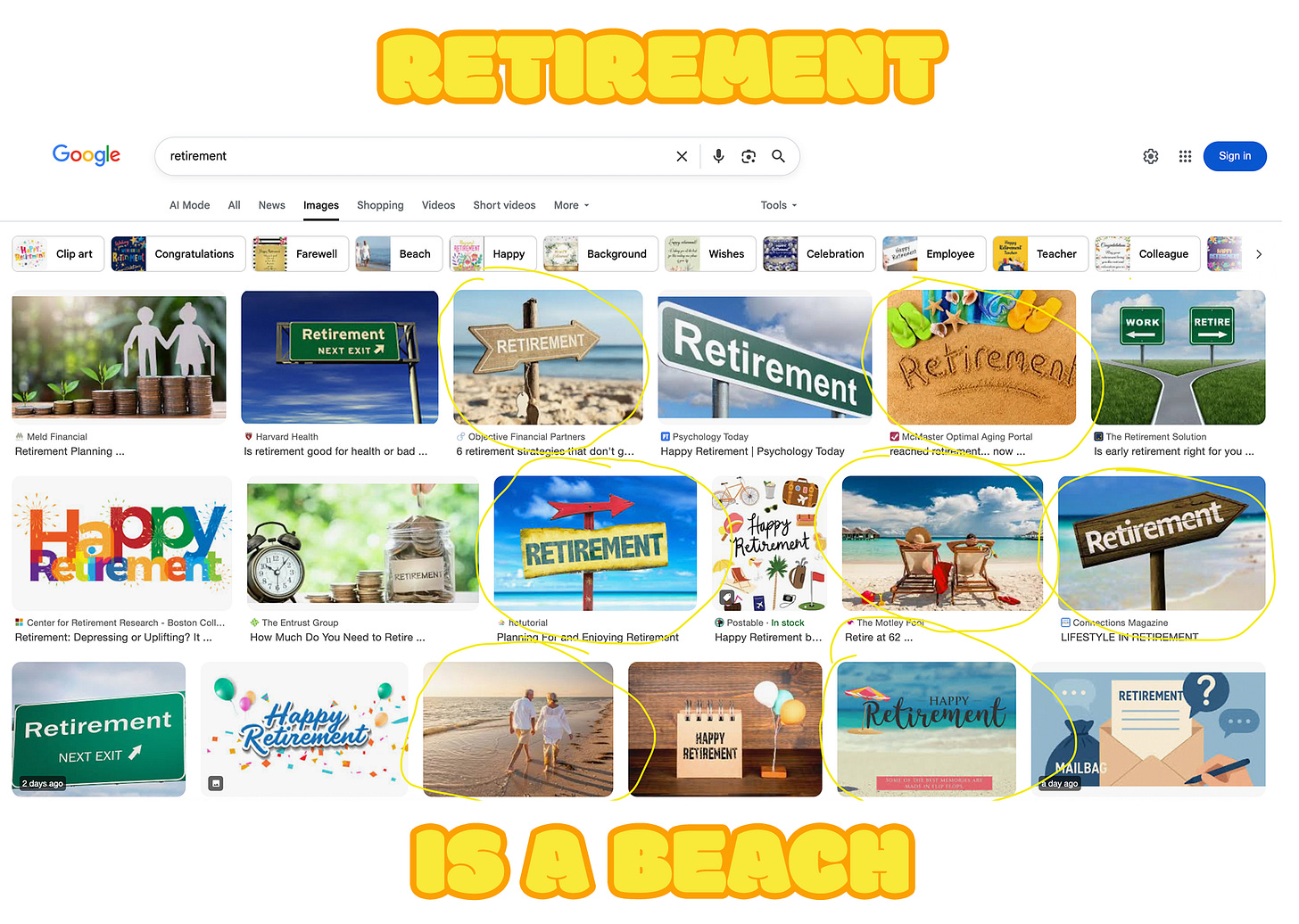The 5 Most Common Retirement Anxiety Disorders
Many Americans are either afraid to retire or retired and afraid.
Being retired is like being a billionaire in that only those who are can tell you what it actually feels like. We work difficult hours and bank a fraction of these in the form of deferred gratification, manifest as dollars on a statement. During these hours, we have a lot of time to think, and we do so with a bias against that which challenges us.
Commiserate with the growing number on a statement, visions of grandeur invade our thoughts as we anticipate endless weekends with our favorite people. Any notion of dread is as far away from our imagination as Saturday is from Monday morning.
Just as the sword of Damocles is real for kings, so too is retirement anxiety. It doesn’t begin to settle in until you truly begin to sell yourself on the idea of tendering your retirement resignation. The person in the mirror will look back at you with a noticeably older complexion and beg you to reconsider.
Mistaking a few grey hairs for wisdom, it’s easy to assume this subconscious advice which opens the door for strong anxieties not felt since puberty. They manifest in strange ways, clouding your future like storm clouds on excursion day.
I have compiled the most common retirement anxiety behaviors, all stemming from the same deep-rooted concern: purpose. If any of these personalities feel familiar to you, this could be a signal that you or someone you know are experiencing golden years without the Midas touch.
The Rich Popper
It is not uncommon for retirees to hold two contradictory positions at the same time. On one hand, they want to spend their last dollar on their death bed. On the other they don’t want to spend anything and assume immortality. Defaulting to the later, they imagine some potentially calamitous event on the horizon. Perhaps they will have a costly health event, although they cannot fathom it. Perhaps they will need to raise an army. Whatever the specter, it is imperative maximum solvency is maintained. Even at the cost of quality of life and familial health.
The Never Retiree
“I’ll retire in 2 -3 years” they’ve been saying for the past eight. It’s not about the money but about the unknown. What does it even mean to be retired? What’s after that? On second thought, it’s best not to ask that question. The thing to do is the thing you know how to do and that’s show up from 9 – 5 and follow orders. Besides, health insurance is a nice perk. A rude awakening awaits the moment they are forced into retirement.
Obligating Gadfly
Restless for change, some cannot wait to give their career the slip. They squirrel away in their 401(k)s with a finger hovering over the eject button. Finally, the anticipation reaches a climax and announcements are made, perhaps prematurely. After several months with a few too many quite moments alone, an internal crisis settles in. Family members are the first to suffer as they often take on the burden of distracting the gadfly while also performing full-time job duties. Spouses are especially susceptible to this obligation. 40+ year marriages have ended over this very issue.
Party Animal
Farer yet most dangerous of all is the individual that launches into retirement like a frat boy on the eve of spring break. Lavish desires turn into substantial withdrawals with an unhealthy disregard for planning. Not limited to material objects, this person may adopt entrepreneurial delusions thinking themselves the next hot restaurantor or angel investor. It is the aggressive pursuit of the present as a means of distraction.
The Bean Counter
Never quite satisfied with their menu of available pursuits, some turn to monetary accumulation as their primary purpose. Similar to the Popper, but different in motivations, the Bean Counter just wants to see the number go higher. Simply for the sake of itself, a higher number should translate to higher meaning. Only it doesn’t, which is why the chase never ends. There is no more meaning found in a drug addiction. They are one in the same.
The world of personalities is as varied as the number of people on earth. This by no means is a comprehensive list, only consisting of the most common retiree anxiety behaviors we encounter within our practice. It is safe to say that most retirees engage in one of the behaviors above at some point in their life.
This does beg the bigger question: what is the right way to live in retirement? Answering this is likely to address most harmful anxieties plaguing retirees, thus improving quality of life. The key to addressing this is to acknowledge that your reward centers have not changed since you were a child.
We think that reaching retirement is a pivotal life moment where we cease development and go on cruise control. I partially blame the financial planning industry for this impression with its ‘feet in the sand’ style advertising. It’s a false message.
To pursue meaning in retirement is no different than it was in your 20s, 30s, and every other decade of your life. It requires us to identify an interesting challenge, something slightly outside of our current skill range, and to tackle it. Until the universe ceases to exist, there is no limit to available challenges.
No magic line exists at age 65. You are the same mind, albeit with more aches and pains. The challenges you take on will certainly be different, adjusted for your shifting biology, but rewarding nonetheless.
So, in a way, the people that figure out retirement are those who never really ‘retire’. At least not in the commonly understood sense of the word. They are more engaged in relationships, less concerned about running out of money, reconciled with mortality, and more thoughtful with their time and finances.
Strangely, the cure to retirement anxiety is work. But it is work on your terms and not an employers’. You are the only person that can orient your actions with your passions, adjusting to the ideal level of difficulty. That is a retirement to look forward to.
Investment advice offered through National Wealth Management Group, LLC (NWMG).
The information presented in this article is for educational and informational purposes only and is not intended as a recommendation or specific advice.
National Wealth Management Group, LLC does not guarantee the accuracy or completeness of the information provided, and opinions expressed are subject to change without notice.





